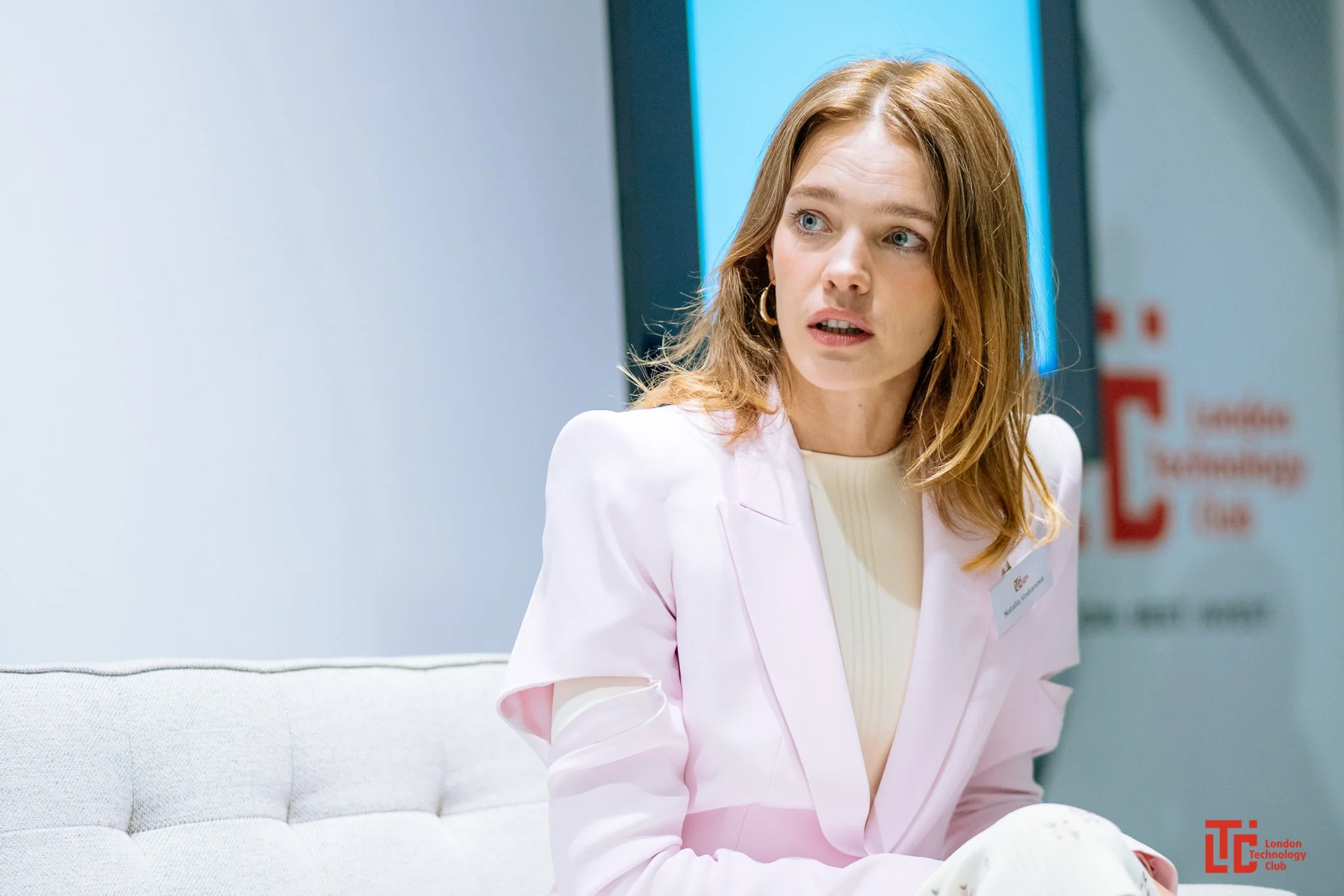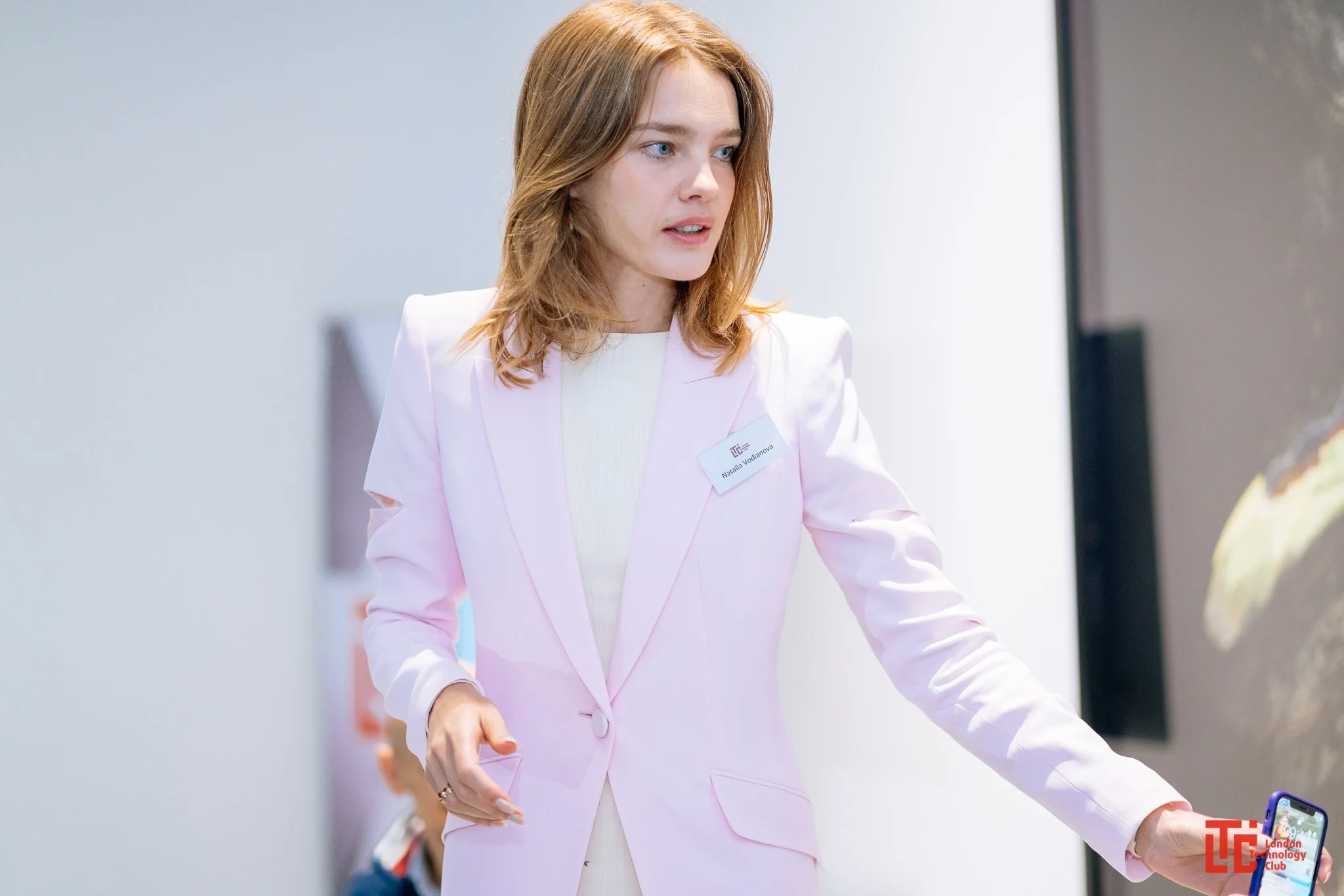Case Study Eleven
Konstantin Sidorov and Natalia Vodianova’s Venture Capstones
‘Nothing Ventured, Nothing Gained’
“Technology can be a huge and powerful force for good. The more people know about the opportunities to transform the world via technology, the better.” — Konstantin Sidorov
“Investing allows me to empower people who are looking to make this world a bit better.” — Natalia Vodianova
For this case study we consider two interconnected leaders and their love for technology. First, we cover Konstantin Sidorov. Second, we outline Natalia Vodianova…
Built on decades of experience, his Capstone combines social capital with venture capital, turning London into a learning lab for the future of tech.
Konstantin Sidorov's Tech Club Capstone
Successful entrepreneur and visionary in the technology sector, Konstantin Sidorov was born in 1967 in Moscow. His father was a professor at the Moscow Aviation Institute (MAI), Russia’s leading aerospace university. A love for technology clearly runs in Konstantin’s family, his father worked on complex systems to manage autonomous flying vehicles and piloting systems for UAVs (unmanned aerial vehicles). Both of his parents were progressive in their style. Konstantin and his sister developed an appreciation for Western cultures, his sister moving to San Francisco.
CORNERSTONE
Konstantin recalls having a conversation with his father at the age of 16 about what profession he should pursue. He was interested in following in his father’s footsteps as an engineer. His father’s advice was that if Konstantin went to Military University, he would graduate with the same qualifications as a civilian university but could immediately double his salary due to the status and the opportunity to advance more quickly.
When the time came to decide, Konstantin remembered the advice and followed it. He enrolled at Mozhaysky Military-Space Academy in St Petersburg and was quickly snapped up by the Moscow Aviation Institute (MAI) after graduating as an engineer. His role was to collect technical and scientific information, analyse it and report on it. Having such resources and a wide remit fast-tracked his understanding of the latest technologies and their potential applications.
KEYSTONE
In 1992, just a month after leaving MAI, Konstantin started his company RRC. It marked the start of his keystone phase for the next thirty years. He still remains Chairman. He applied all that he had learned to build several businesses under the RRC group. RRC became one of the largest partners to companies such as Cisco, Microsoft and IBM, operating in over a dozen markets across Eastern Europe. Turnover quickly grew to half a billion dollars a year.
RRC became a major shareholder in several companies and had a string of success stories: DataLine, for example, became the market leader in data centres. Konstantin recalls that during the 2007–08 debt crisis, many companies stopped investing in data centres. Winston Churchill once said, “Never let a good crisis go to waste,” and RRC got busy during that period. By the time the crisis had abated, they were the market leader.
In 2016, Konstantin sold the Central and Eastern Europe (CEE) division of RRC Group to Ingram Micro, the US distributor of IT products. At the time, Ingram was a NASDAQ-listed company. He retained the CIS operations, headquartered in Moscow, until selling DataLine to Rostelecom in early 2020 for $330 million.
CAPSTONE
With an exit plan on the horizon, Konstantin began investing in early-stage technology companies. He saw early success with investments in the likes of Lyft and Spotify (after being introduced to founder Daniel Ek, whom Konstantin identified as a great leader). He had a true passion for venture capital and backing young companies and founders.
He decided against establishing a traditional family office to manage his wealth. He enjoyed the mix of socialising, discussing technology, and making investments. He realised he already had an informal investment club with friends and identified that many people in London were struggling to understand how to invest in technology companies within private markets.
“London is the capital of clubs, each with a different focus—from wine to automobiles, Oxford & Cambridge to farmers, yachting, cats, dogs and snakes!” he says. “But there was nothing for technology.”
So, he launched a club to help others understand the potential of technology, the hottest emerging companies, and how to navigate the world of venture capital. The London Technology Club (LTC) was born.
Konstantin quickly found a Wingman (the author of this book…) and built a small, high-performance team to manage the project. This included his wife Maria, who has a passion for events and manages all of LTC’s marketing and gatherings. Many of the founding members and Advisory Board were close friends, but within two years the club had over 70 members and top institutional partners such as LGT Vestra, UBS and Barclays.
For Konstantin, there is real fulfilment in co-investing with others and discovering new opportunities:
“I don’t see LTC as work. It’s my favourite passions all in one: a place for networking, meeting friends, enhancing mine and others’ learnings, and working through interesting technology opportunities.”
The Capstone’s ethos is ‘first-class investing’, with events held in private members’ clubs in Mayfair, London. LTC hosts world-class speakers, company founders, and top VC firms, uniting people around the shared language of technology investing. The Capstone has enabled Konstantin to build a fantastic community of like-minded individuals. Early- and growth-stage companies are also benefitting from new pools of capital that might not have otherwise flowed into the technology sector.
“There are moments when it really clicks. We’ll be looking at the future of a certain technology, the company founder will be sharing their views on changing the world with their product, I’ll be learning and absorbing leading-edge information, and members will be exchanging ideas and perspectives. It’s so much more rewarding than being tucked away in a closed-off office somewhere in St James’s. Being a Russian-born person in London can sometimes be challenging—LTC gives me a different reason to meet people and provides a shared purpose from the start: to celebrate investing in technology.”
The club has grown to over 130 members, with investor hubs in London, Dubai, and Hong Kong—not to mention hosting LTC global events in the likes of St Tropez, Los Angeles, Malta, Verbier, and Abu Dhabi. Konstantin remains deeply involved in the Capstone. It has become an integral part of his and his family’s experience of life in London.
“It has quickly turned into something I’m very proud to say is my Capstone and has really enhanced this phase of both mine and my family’s life in London.”
He now sees success as when a member comes with a request for help and the community can collaborate, share, and solve problems together:
“It’s a lot more fulfilling than shutting ourselves away in a private office and not sharing ideas and opportunities. Technology is crucial to all of our lives and future prosperity, so there’s no better thing than for our club to widen the awareness and opportunities.”
His vision has also inspired others—including philanthropists, founders, and cultural icons like Natalia Vodianova—to align their impact with technology, aided by the Club.
Natalia Vodianova’s Supernova Capstone
“Almost all of the tech companies that we invest in are, in one way or another, bettering the world.”
“Good is the new cool. Philanthropy, sustainability, being a responsible business and conscious consumer are behaviours that are here to stay. I now have the confidence to utilise technology and become an impact investor.”
— Natalia Vodianova
One of the long-term supporters of Konstantin’s London Technology Club is supermodel and philanthropist Natalia Vodianova, whose Capstone evolved at the intersection of fashion, purpose, and frontier technology. Nicknamed ‘Supernova’, Natalia is one of the most globally recognised Russians, known for her rags-to-riches story and fearless commitment to social progress.
The supermodel has graced the top fashion magazine covers and catwalks for over 20 years. But Natalia has never forgotten her roots and has used her position to trigger social change—especially through impact investing and technology.

CORNERSTONE
Natalia was born in Nizhny Novgorod, Russia, in February 1982. She grew up in poverty in the former Soviet Union. Her father walked out on the family when she was a toddler. As a teenager, helping her single mother and two sisters, one of whom had cerebral palsy, she sold fruit on the street to help lift the family out of poverty. She was encouraged to become a model and signed with an agency at the age of 15. Two years later, she moved to Paris to pursue a modelling career.
Two people would have a major impact on Natalia: her Mordovian grandmother, who spent 50 years working in a factory, and her childhood friend—and now ‘Wingman’—Timon Afinsky.
KEYSTONE
For many aspiring models and designers, landing the cover of Vogue is the pinnacle. By 2017, Natalia had featured on 71 Vogue covers across 16 countries. She consistently ranked among the top ten highest-earning models (including a seven-figure, eight-season contract with Calvin Klein), and is recognised by models.com as one of the “New Supers” in fashion.
Alongside her modelling career, she also became a mother of five. She married British property heir Justin Portman in 2001 and had three children. They separated in 2011. Natalia then met Antoine Arnault, CEO of luxury brand Berluti and son of LVMH founder Bernard Arnault. Together they have two sons, and married in 2020. Natalia says:
“It’s important as a parent to have something ‘you always do’. Everyone remembers their mum or dad by something ‘they’d always do X with me’. I am all about creating experiences and thus memories for and with my children.”
CAPSTONE
The best words to describe her focus beyond modelling? Philanthropist and impact investor.
“I felt totally exposed in the fashion industry due to my quick rise. I knew I wanted to do something positive with my position. At the same time, I saw the trauma of the 2004 Beslan School siege. I’m passionate about trying to ensure that every child in Russia has a loving family and a safe, stimulating place to play.”
In 2004, Natalia formed the Naked Heart Foundation to support foster families and children with disabilities. The foundation funds NGOs that serve such families, seeks to change attitudes towards disability, and works to prevent child abandonment.
“I have this very incredible fashion industry behind me that I always tapped into when we needed a reward for big donors. To date, the foundation has raised over $40m, allowing it to build 200 accessible play parks and playgrounds—some located at orphanages, children’s hospitals and rehab centres. It’s also financed 20 projects across 7 Russian cities, and campaigns on behalf of causes like the UN Convention on the Rights of Persons with Disabilities.”
A major enabler has been the Fabulous Fund Fair in London, an annual fundraising gala since 2015 and one of the most well-attended events on the London Fashion Week schedule.
“It’s taken on a life of its own now, which is fantastic. Luxury brands have embraced it with their fair stalls. While we set the wheels in motion, all I have to do now is ensure it keeps up momentum.”
Timon has been key in leveraging her powerful social following. Together, they see social media as a tool for social and corporate responsibility:
“Timon changed my mind about the power of social media. Since then, we’ve embraced it as a way of inspiring others and championing causes close to our hearts.”
According to Timon:
“Most of Natalia’s investments come out of frustration—where a solution doesn’t exist or isn’t good enough. So she sets out to find or mobilise a team to fix it.”
Together they created Elbi, the first charity app to accept Apple Pay. Natalia wanted a “Love Button” to replace meaningless likes with meaningful action:
“What if we turn all of these meaningless ‘likes’ into something really important?”
So in 2015, Elbi was born.
Natalia’s other impact investments—often in collaboration with Konstantin, LTC, and Timon—focus on areas she is passionate about. She gravitates toward companies with a strong sense of purpose—especially those using technology as a tool, not an end:
Voir – a digital makeup app for product testing and seamless ordering.
Little Tummy – organic baby food using cold-press tech and designed by paediatricians.
3DLook – a pioneer in body-data and mobile 3D scanning, aiming to create universal digital body passports.
Niance – In June 2024, Natalia acquired a majority stake in this Swiss biotech brand focused on gut health and longevity using prebiotic/probiotic technology.
Flo – The leading women’s health and period-tracking app. Backed by the London Technology Club members and personally championed by Natalia, it has become a powerful symbol of their shared belief: that the future of technology lies in solving meaningful human problems. The AI-powered women’s health platform now serves over 70 million users.
“Only about 12% of women in parts of Asia have access to sanitary products. There's still a shadow of shame around menstruation, even in the UK,” says Natalia.
“Overall, the key,” says Timon, “is knowing Natalia’s vision and values. Once that’s clear, I can assess opportunities, recommend strategies, and know where to best utilise her influence—always for good.”

SUMMARY
A Vogue feature once asked: “What’s a supermodel to do when she’s reached the apex of the fashion industry early in her two-decade (and counting) career?” Natalia’s answer: tech angel investing and philanthropy. Her formula is to back companies that aim to change the world—and use technology to accelerate that change.
“It’s simple,” she says. “We have the responsibility to build a more sustainable, kinder, inclusive world.”
~ From Venture To Values ~
While Konstantin Sidorov built the London Technology Club as a modern engine for venture capital and innovation, Natalia Vodianova brought her global influence and humanitarian firepower into the same ecosystem.
Their Capstones are distinct but overlapping, connected by a shared interest in how technology can be more intelligently deployed. Both see technology as a force for good


